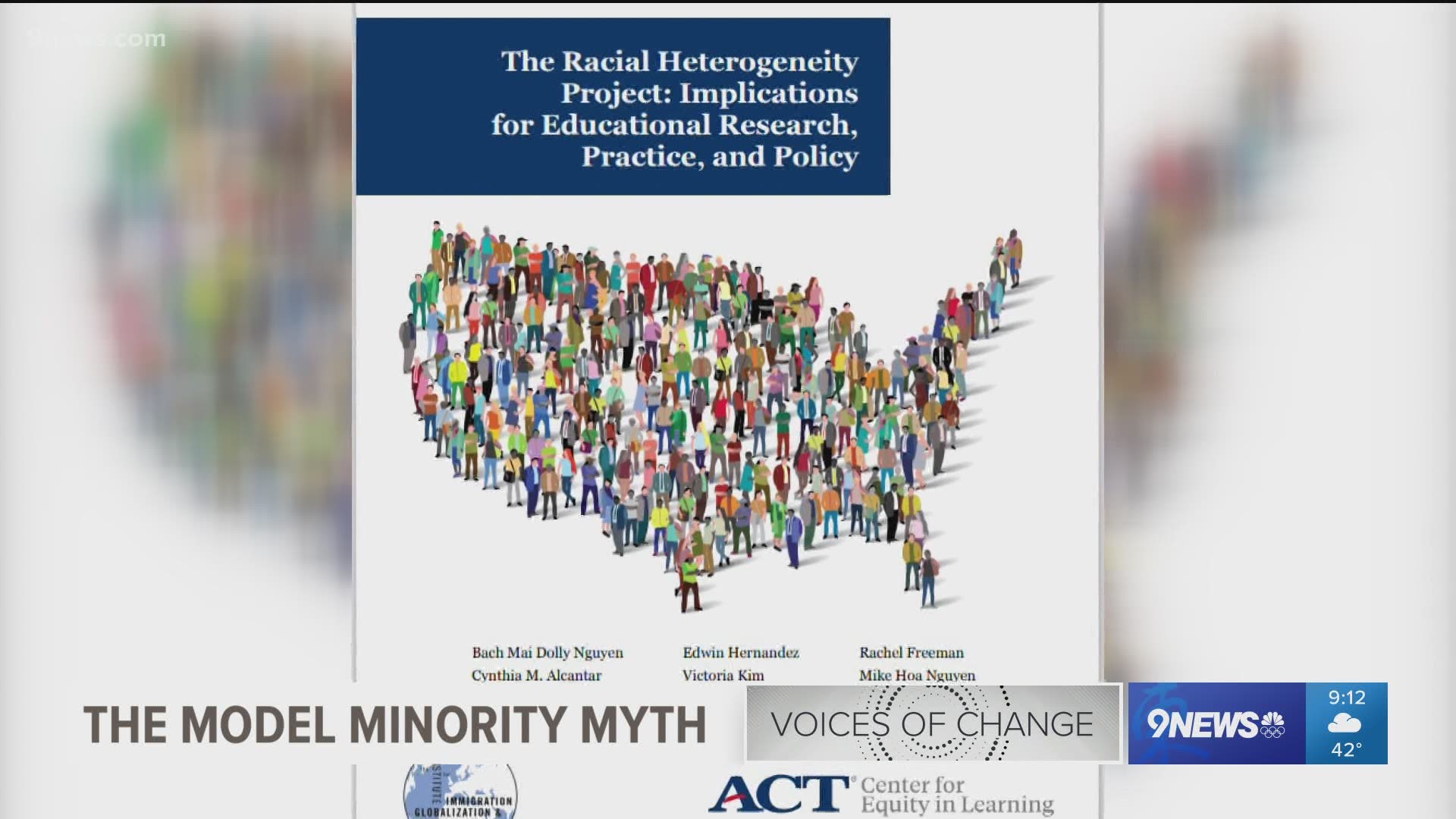GOLDEN, Colo. — In an age when first impressions are often made on a screen, preconceived notions can be magnified, and they're something Rath Preap wants to change.
"I was actually born in the country of Cambodia, came to America when I was very young," Preap said.
He is a graduating senior at the Colorado School of Mines, where he has to be good math and science regardless of his background. Preap grew up in Denver and Aurora said he knows what it's like to be stereotyped.
"To be honest, especially where I came from, I was the only Asian," Preap said. "Trust me when I say, I definitely got that growing up."
There is a assumption in this country called the "Model Minority Myth," as explained by University of Denver's Dr. Mike Hoa Nguyen.
"The Model Minority Myth is a really harmful and dangerous stereotype that mischaracterizes Asian Americans and Pacific Islanders as universally successful, as high achieving, hardworking and essentially achieving some level of success that's unparalleled," Nguyen said.
Nguyen is a researcher and assistant professor studying race and perceptions and the impacts in education. Nguyen, who is Vietnamese, said the myth assumes people like Preap are good at math and science just because they're Asian.
"The assumption is that they are doing well, they're okay, they don't need any help, they don't need any assistance, and so they are left invisible," Nguyen said. "No one is paying attention to them."
Preap said that happened to him often in high school.
"I just had it just like that, right?" he said. "It's like, 'no, you Asian.' You're already good at math. You were born with it. I'm like, 'no, I worked for it.'"
Preap said he feels like the myth discredits his struggle to get to and make it at the Colorado School of Mines as an engineering major.
"And, then it also at the same time reframes our experiences as someone whose not a person of color, who doesn't experience race or racism," Nguyen said.
Preap said he and his family have felt threatened.
"I felt that racism," Preap said. "I felt that growing up. Anything from small micro-aggressions to fearing for my own safety, my family's safety, especially this year."
The past year has been a time when some people blame the pandemic on Asians and a time when racial violence is on the rise.
"The other aspect of it that is really problematic is that then it pits other racial groups against Asian Americans," Nguyen said.
Nguyen said some people just think all Asians are alike.
"It's a very complex, diverse racial group, but the stereotype places us into this monolith where everyone is sort of seen as the same," Nguyen said.
His research shows more than 50 ethnicities from Asia are living in this country and that the idea that they're all going to a top-notch university is false.
"If you look at actually the numbers of Asian Americans and Pacific Islanders in higher education, about 50% of them are in community colleges," Nguyen said.
Preap is the first person in his family to graduate from college. While his personal success and engineering degree fits into the myth of being a model minority, Preap has been told he doesn't sound like an Asian.
"Oh my God, all the time, yeah," Preap said. "I cannot tell you how many times that has happened."
Nguyen said the Model Minority Myth suggests all Asians are polite and invisible.
"That they keep their head down and stay quiet and do their work," Nguyen said.
Preap is proud to be loud. He also runs different organizations around campus, breaking the myth that Asians cannot be leaders.
"I am proud of who I am regardless of my race," Preap said.
Nguyen said people across the country are working on policy and education to eliminate this false idea.
"There are researchers like me who are investigating and producing new empirical research to demonstrate the complexity of our communities," Nguyen said. "That way, people have a sense of who we are and where we come from and our life experiences."
As Preap tries to make good first impressions in life, he wants to dispel the Model Minority Myth just by being himself.
"If I can change just a little perspective then that's worthwhile," Preap said.
SUGGESTED VIDEOS: Voices of Change

